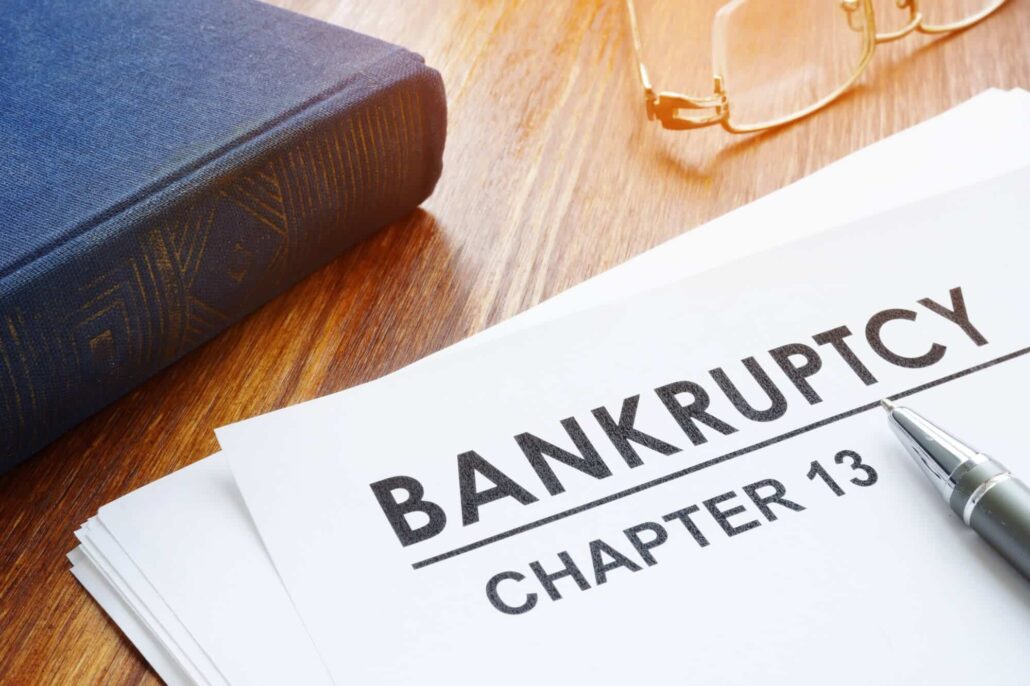Chapter 13 Bankruptcy
What exactly is a Chapter 13 bankruptcy in Oklahoma?

A Chapter 13 bankruptcy is the kind of bankruptcy where an individual makes payments to creditors over a three to five-year period, as opposed to a Chapter 7 bankruptcy where you don’t pay anyone back. A Chapter 13 is a payment plan that is often referred to as a debt consolidation or reorganization. In a Chapter 13, you get to lump all of your bills into one payment, usually at a reduced amount.
What Is A Chapter 13 Discharge?
A Chapter 13 discharge is a discharge of all debts that are not paid through the Chapter 13 bankruptcy plan. In a Chapter 13 plan, you are paying certain debts in full while other debts are possibly not being paid in full. For example, priority taxes are required to be paid in full during the three to five years in a Chapter 13 plan. Whereas with credit cards, you may be paying anywhere from 0% to 100% back. For instance, in a Chapter 13, if you only have to pay back 5% of what you owe to unsecured creditors like credit cards, personal loans, and medical bills, then the other 95% would be discharged at the end of the Chapter 13 bankruptcy.
What Debts Are Released By A Chapter 13 Bankruptcy?
Debts that are discharged in a Chapter 13 bankruptcy include non-priority debts such as some taxes, credit cards, medical bills, and personal loans. These kinds of debts are not paid in full in the bankruptcy.
Is There Anything Not Dischargeable In A Chapter 13 Bankruptcy?
Debts that are not discharged in a Chapter 13 include priority taxes, newer taxes, and taxes incurred in the last three years. Older taxes or child support are not dischargeable in a Chapter 13, or any other type of bankruptcy. Student loans are also not dischargeable in a Chapter 13 bankruptcy.
Will I Lose All Of My Property In A Chapter 13 Bankruptcy?
You will not lose all of your property in a Chapter 13 Bankruptcy. In a Chapter 13 bankruptcy, you keep all the property that you own. Unlike a Chapter 7, where a trustee takes non-exempt assets and sells them, the Chapter 13 trustee does not do that. You keep all of your property in a Chapter 13 case.
What Are The Eligibility Requirements To File A Chapter 13 Bankruptcy?
The main eligibility requirement for a Chapter 13 case is that you have to have disposable income. Since you are making payments back to creditors over a three to five-year period, you have to have the ability to make those payments. A Chapter 13 is not for someone who is unemployed.
How Does A Chapter 13 Impact Any Lawsuits Or Attachments Already Filed Against Me?
Similar to a Chapter 7 case, there is an automatic stay that goes into effect upon filing a Chapter 13 bankruptcy. The stay prevents creditors and any collection activity from trying to collect money or contact you while you are in bankruptcy. It stops your creditors from writing letters, calling you, filing lawsuits, getting judgments against you, or getting garnishments.
What Is The Trustee Of A Chapter 13 Bankruptcy Case? What Does He or She Do For Me?
The Chapter 13 trustee’s main job is to administer the bankruptcy estate. The trustee will accept payments that you make and distribute those payments on a pro-rata basis to all of your creditors. You would make one payment to the Chapter 13 trustee, and then he or she would pay the house, cars, taxes, credit cards, medical bills, personal loans, and all other unsecured non-priority debts.
How Long Does A Chapter 13 Bankruptcy Typically Take?
A Chapter 13 case takes least 3 years and can last no more than 60 months, or five years. The length depends on your income. Some people file a Chapter 13 for only 36 months, some do it for 60 months, and some can do it for any number in between.
What Are My Options If I Am Not Eligible To File For Chapter 13 Bankruptcy?
If you are not eligible for a Chapter 13 bankruptcy, there’s also the option of a Chapter 7 bankruptcy for most people. For most consumer debtors, it’s either a Chapter 13 bankruptcy or a Chapter 7.
For more information on Chapter 13 Bankruptcy In Oklahoma, a free initial consultation is your next best step. Get the information and legal answers you are seeking by calling (405) 213-1919 today.
Contact Us Today Risk Free!
(405) 213-1919

